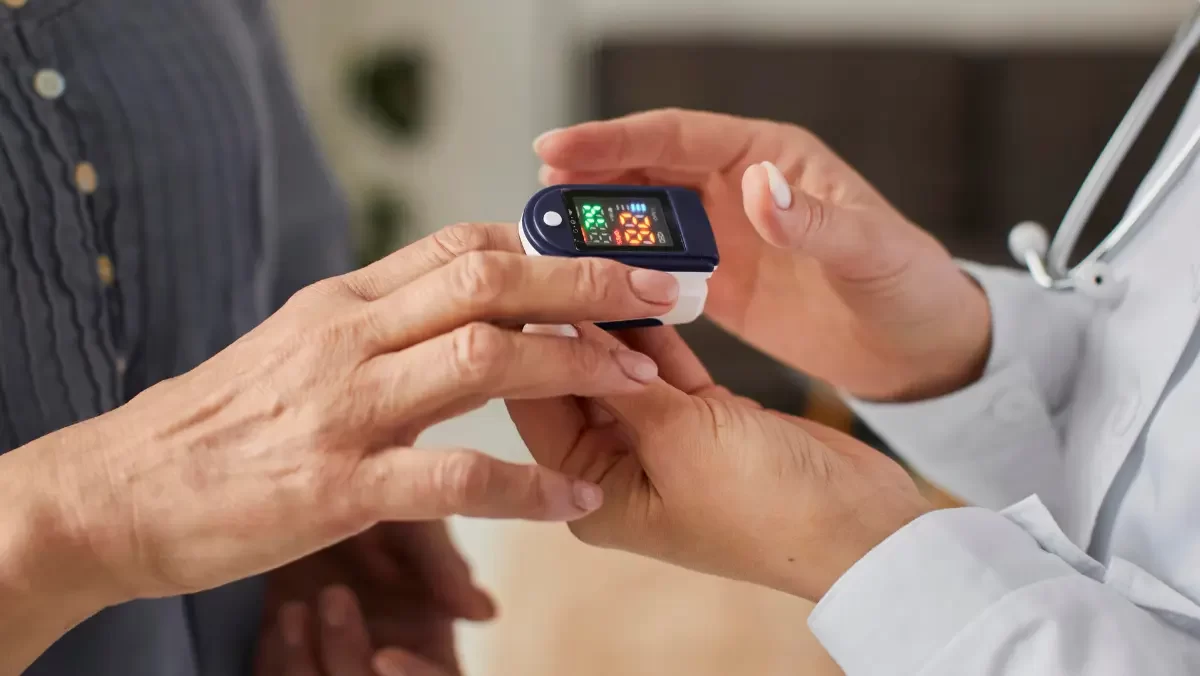A Diabetic Health Checkup is a specialized diagnostic process aimed at assessing an individual’s risk of developing diabetes or managing the condition in those already diagnosed. With the increasing global prevalence of diabetes, early detection and effective management are critical for preventing severe complications such as heart disease, kidney failure, and blindness. A regular checkup helps monitor blood sugar levels, assess insulin function, and evaluate overall metabolic health.
For those at risk or currently managing diabetes, these checkups are essential to prevent long-term health consequences and improve quality of life. The procedure typically involves screenings and blood tests, offering a comprehensive evaluation of an individual’s diabetic health status.
The rising incidence of diabetes worldwide highlights the importance of regular health checks, including a Gastro Health Checkup, to reduce complications and improve health outcomes for individuals affected by the disease.
Diabetes Screening
Diabetes screening is a vital part of a Diabetic Health Checkup, helping to identify individuals at risk of developing Type 2 diabetes, even before symptoms appear. Early screening allows for timely interventions, such as lifestyle modifications or medication, to prevent or delay the onset of diabetes. This screening typically involves a combination of blood tests, family history evaluation, and assessment of risk factors like age, weight, and sedentary lifestyle.
Key components of diabetes screening include:
- Fasting blood sugar test: Measures blood glucose levels after an overnight fast to determine if they are within normal range.
- Oral glucose tolerance test (OGTT): Involves drinking a sugary solution and measuring blood glucose at regular intervals to assess the body’s ability to process sugar.
- A1C test: A blood test that measures average blood glucose levels over the past 2 to 3 months, helping assess long-term diabetes risk.
Early detection through screening allows for proactive measures to manage diabetes risk and prevent the onset of full-blown diabetes.
Blood Sugar Monitoring
Blood sugar monitoring is crucial for managing diabetes effectively, whether an individual has been diagnosed with Type 1 or Type 2 diabetes, or is at risk. Consistent monitoring helps patients understand how their blood glucose levels fluctuate throughout the day and in response to food, physical activity, and medication. This can help identify patterns and adjust treatment plans accordingly, keeping blood sugar levels within the target range and reducing the risk of complications.
Blood sugar monitoring typically involves:
- Home glucose testing: Using a glucometer to test blood sugar levels multiple times a day, especially before and after meals, to gauge fluctuations.
- Continuous glucose monitoring (CGM): A more advanced method that involves wearing a small sensor under the skin, providing real-time blood glucose readings throughout the day and night.
- Random blood sugar tests: Taken at any time of day, providing an overview of glucose levels outside the fasting period.
Regular monitoring helps individuals better manage their diabetes and avoid dangerous spikes or drops in blood sugar.
Insulin Resistance
Insulin resistance occurs when the body’s cells become less responsive to insulin, a hormone that helps regulate blood sugar levels. This condition is a precursor to Type 2 diabetes and can lead to higher blood sugar levels over time, significantly increasing the risk of developing diabetes and related complications. Identifying insulin resistance early allows individuals to make necessary lifestyle changes to prevent full-blown diabetes.
Assessing insulin resistance typically includes:
- Fasting insulin test: Measures insulin levels after fasting to identify whether the body is producing more insulin to compensate for its reduced effectiveness.
- Homeostasis model assessment (HOMA-IR): A calculation based on fasting insulin and glucose levels to estimate insulin resistance.
- Waist-to-hip ratio and body mass index (BMI): These indicators can highlight fat distribution, which is closely linked to insulin resistance, particularly abdominal fat.
Identifying insulin resistance through a Diabetic Health Checkup can guide preventive strategies to reduce the risk of diabetes and improve metabolic health.
Glucose Testing
Glucose testing is a central component of any Diabetic Health Checkup, as it provides real-time insight into an individual’s blood sugar levels. Regular glucose testing helps identify abnormal spikes or drops in blood sugar, which can be critical for individuals managing diabetes or those at risk. Early glucose testing can also identify prediabetes, allowing for early intervention to prevent the progression to full diabetes.
Types of glucose testing include:
- Fasting blood glucose test: Measures the glucose level after fasting for at least 8 hours. High levels indicate a risk for diabetes.
- Postprandial glucose test: Taken 2 hours after eating, this test checks how well the body processes glucose after meals.
- A1C test: This long-term test measures average blood glucose levels over the past 2-3 months and helps identify overall glucose control.
Regular glucose testing ensures better blood sugar management, reducing the risk of diabetes-related complications and promoting better overall health.
Diabetes Management
Effective diabetes management involves more than just monitoring blood glucose levels; it also includes understanding the best ways to control diet, exercise, and medication. For those diagnosed with diabetes, regular health checkups provide insights into how well their condition is being managed and what adjustments may be necessary to optimize treatment. Diabetes management also involves managing comorbid conditions such as hypertension, cholesterol, and kidney function to reduce the overall impact of the disease.
Diabetes management strategies typically include:
- Medication management: Reviewing the effectiveness of oral medications or insulin therapy to ensure that blood sugar levels are controlled.
- Diet and exercise plans: Tailored nutrition and physical activity programs to help maintain healthy blood sugar levels.
- Regular monitoring of other health indicators: Managing blood pressure, cholesterol, and kidney function to prevent complications associated with diabetes.
A comprehensive approach to diabetes management, supported by regular checkups, helps individuals live healthier lives and minimizes the long-term complications of the disease.
Conclusion
A Diabetic Health Checkup is a vital tool for detecting, monitoring, and managing diabetes, ensuring better long-term health. Regular screening, blood sugar monitoring, and early detection of insulin resistance help individuals manage their condition effectively and prevent its progression. At Prime Indian Hospital, we offer comprehensive Diabetic Health Checkups that evaluate all aspects of diabetic health. These checkups provide the necessary tools and insights to help you take control of your health, make informed lifestyle choices, and prevent serious complications. By staying proactive about diabetes management, you can lead a healthier life and reduce the risk of long-term health issues associated with the disease.















